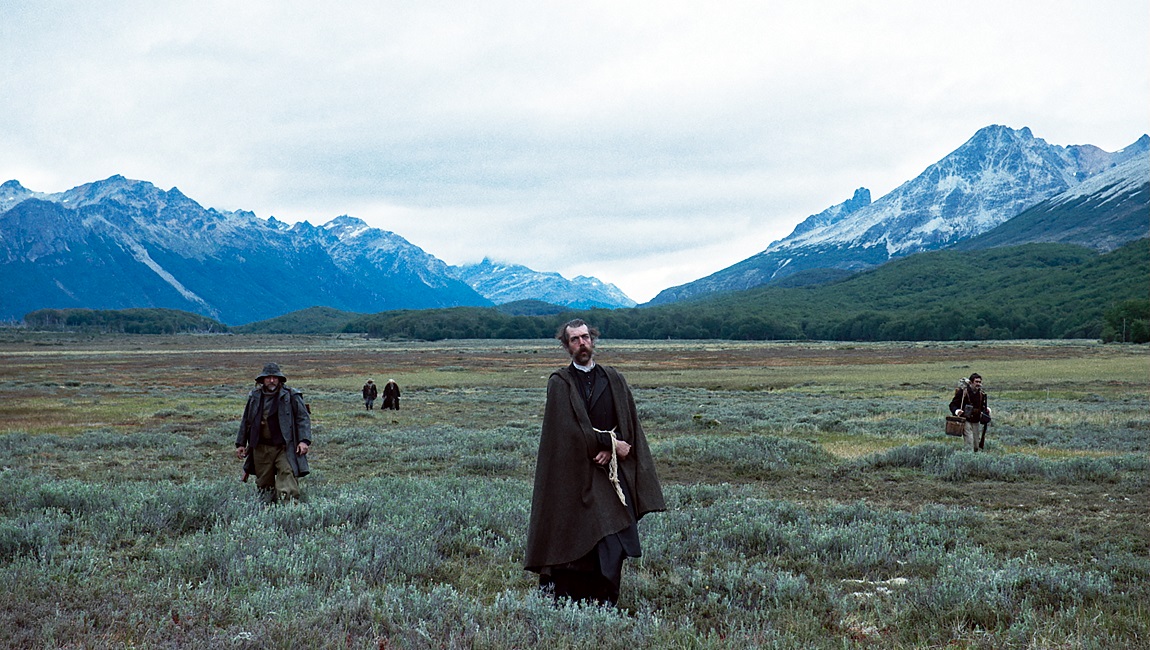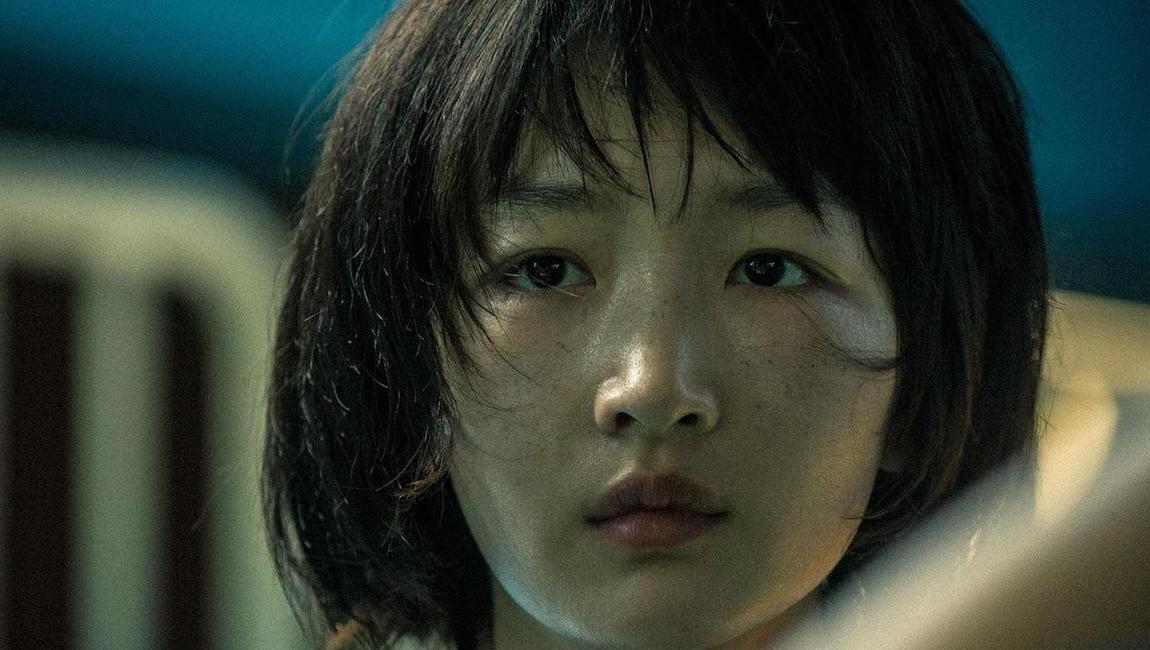A deeply spiritual, even existential, odyssey that mingles numerous contradictory forces into a striking whole, The Tale of King Crab is certain to be remembered as one of the year’s best films.
After a very brief intro, The Tale of King Crab (originally, Re Granchio) opens on a group of present-day Italian hunters gathering around a table in a cabin for food and drink, before they begin to recount a dark tale from the days of yore that has been passed down generation by generation. The debut fiction feature from directors Alessio Rigo de Righi & Matteo Zoppis, King Crab is a fairy tale told according to a specific narrative strategy, one that finds its modes of storytelling and precise structuring deeply rooted in the rich tradition of the Italian folklore — Giovanni Boccaccio’s The Decameron and Giambattista Basile’s The Pentamerone are the two most prominent examples that jump to mind. And so, the hunters’ story soon casts viewers back to the final years of the 19th century, and right into the first of this two-chapter fable — titled “The Saint Orsio’s Misdeed” — which follows its antihero, Luciano (played by Roman contemporary artist Gabriele Silli), a strange, scruffy strongman replete with unkempt beard and who, according to legend, was known to be of many different personas: a madman, an aristocrat, a saint, a drunkard, and even a rogue. This first chapter, which is set amid the bucolic landscapes of Tuscia — filled with shimmering sunlight and glistening fields, and echoing with the inhabitants’ beautiful chants and songs — easily showcases how the directors’ previous experience in documentary filmmaking has provided a strong formal backbone here in working with both environmental and ethnographic aspects within the realm of fiction. Exquisitely lensed by DP Simone D’Arcangelo, this mysterious, atmospheric film manifests a very fine (and perhaps, rare) balance between rich visual perfectionism — most reminiscent of baroque paintings — raw, natural beauty, and evocative, poetic compositions, often of figures strewn across the immense landscapes.
If the first chapter — in which the ill-fated love of Luciano and a shepherd’s girl, Emma (Maria Alexandra Lungu), ends tragically after his rebellious acts against the local tyrannical prince — situates Righi & Zoppis’ film within the prolific lineage of earlier Italian masters like Pier Paolo Pasolini and the Taviani brothers, and alongside contemporaries such as Pietro Marcello, Franco Maresco, and Michelangelo Frammartino, the second chapter (ominously and farcically called “The Asshole of the World”) easily evokes the profundity of Lucrecia Martel’s Zama and Lisandro Alonso’s Jauja, but in its own singular manner. It works as a logical aesthetic decision too, as from this point in the film forward the rural Italian setting of its first half morphs into the arid deserts of the Tierra del Fuego archipelago (translation: “Land of Fire”) in Argentina’s southernmost region of Patagonia — the relocation isn’t unlike a descent from some verdant paradise into the very bowels of hell. And so this is where the story continues forth from, as Luciano, now self-exiled and impersonating a missionary, finds himself among a bunch of pirates and mercenaries in search of a long-hidden royal Spanish treasure at the bottom of a faraway lagoon that only a giant crab can guide them to.
Almost entirely deprived of its initial pastoralism and folklorish texture, both King Crab’s change of physical and tonal atmosphere pitch its second half more as a fusion of Latin American magical realism and the classic adventure narratives from authors like of Robert Louis Stevenson or Daniel Defoe. To a further degree, it even tends toward the Western, what with its gold rush context and myriad gunfights that gradually give way to contemplative, patient rhythms, which function for Luciano — and viewers — as waves in a spiritual, or even existential, odyssey. So while the film’s initial chapter seems more interested in probing such classic literary themes of individualism, hamartia, loss, and sin, the latter shifts gears to encompass the more abstracted motifs of bewilderment, penance, and retribution. Indeed, The Tale of King Crab, just like its main character, can be regarded as many things: both a classical and distinctly modern film, connected as much to the oral traditions of storytelling as it is grounded in the novelty of the image. The successful interweaving of its two disparate threads feels almost effortless by the film’s end, its artistry consistently surprising as it manages to mingle its often contradictory forces in a purely organic way, never skewing into either cheap manipulation or pretentiousness. It’s all the more impressive a feat for such a young directorial duo to pull off. Luciano might have failed to get his hands on the desired treasure — at least, the one he went out looking for — but for viewers, it’s not an exaggeration to declare The Tale of King Crab one of the secret cinematic jewels of the year.
Originally published as part of Cannes Film Festival 2021 — Dispatch 7.







